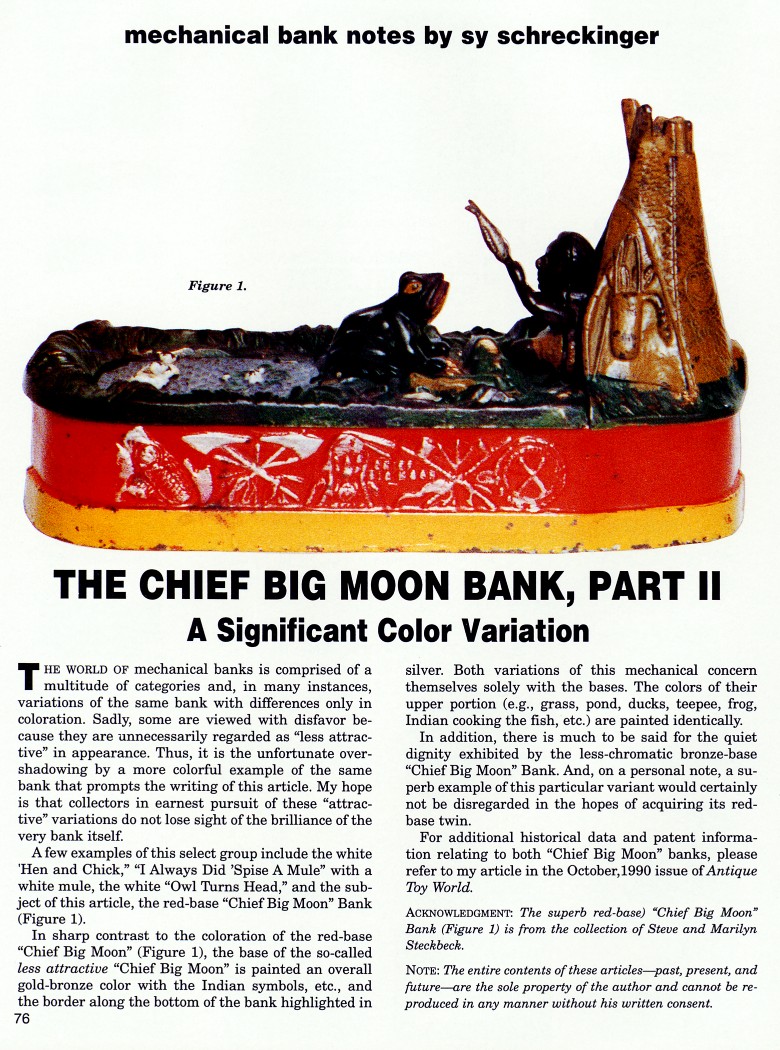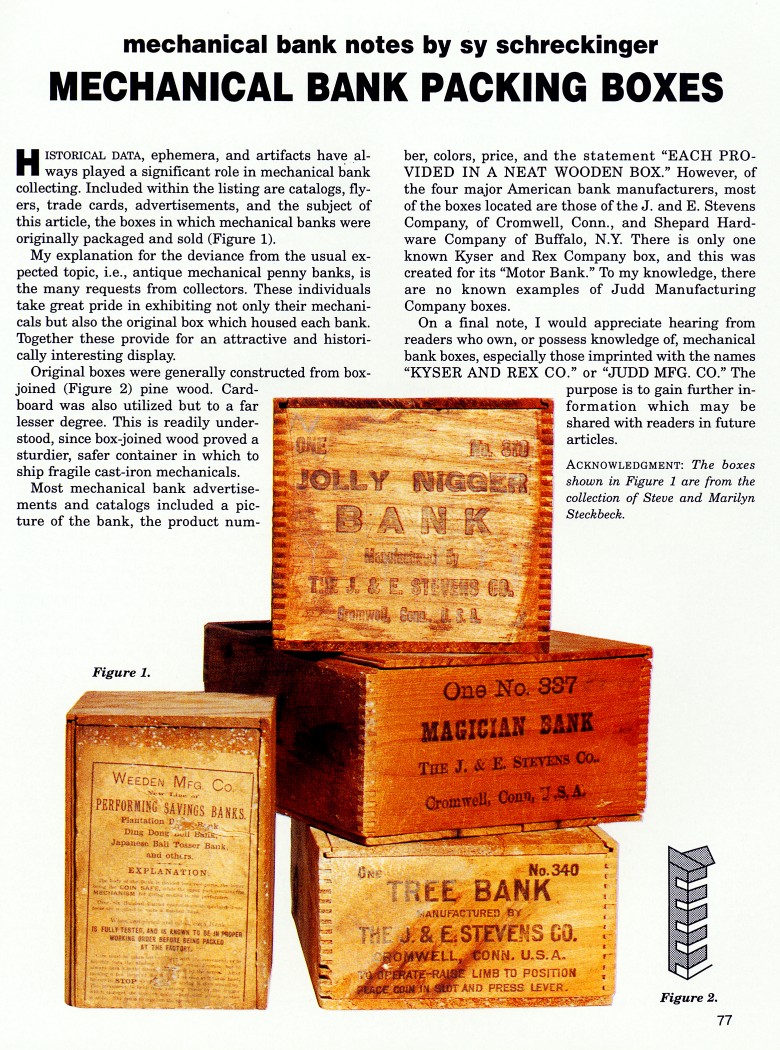|
The Chief Big Moon Bank, Part II
A Significant Color Variation
by Sy Schreckinger – ANTIQUE TOY WORLD Magazine – April, 1998
The world of mechanical banks is comprised of a
multitude of categories and, in many instances, variations of the same
bank with differences only in coloration. Sadly, some are viewed with
disfavor because they are unnecessarily regarded as "less attractive" in
appearance. Thus, it is the unfortunate overshadowing by a more colorful
example of the same bank that prompts the writing of this article. My hope
is that collectors in earnest pursuit of these "attractive" variations do
not lose sight of the brilliance of the very bank itself.
A few examples of this select group include the white 'Hen and
Chick," "I Always Did 'Spise A Mule" with a white mule, the white "Owl
Turns Head," and the subject of this article, the red-base "Chief Big
Moon" Bank (Figure 1). In sharp contrast to the coloration of the red-base
"Chief Big Moon" (Figure 1), the base of the so-called less attractive
"Chief Big Moon" is painted an overall gold-bronze color with the Indian
symbols, etc., and the border along the bottom of the bank highlighted in
silver. Both variations of this mechanical concern themselves solely with
the bases. The colors of their upper portion (e.g., grass, pond, ducks,
teepee, frog, Indian cooking the fish, etc.) are painted identically.
In addition, there is much to be said for the quiet
dignity exhibited by the less-chromatic bronze-base "Chief Big Moon" Bank.
And, on a personal note, a superb example of this particular variant would
certainly not be disregarded in the hopes of acquiring its red-base twin.
For additional historical data and patent information relating to
both "Chief Big Moon" banks, please refer to my article in the
October,1990 issue of Antique Toy World.
ACKNOWLEDGMENT: The superb red-base) "Chief Big Moon" Bank (Figure 1)
is from the collection of Steve and Marilyn Steckbeck.
NOTE: The entire contents of these articles — past, present, and
future — are the sole property of the author and cannot be reproduced in any
manner without his written consent.
Mechanical Bank Packing
Boxes
by Sy Schreckinger – ANTIQUE TOY WORLD Magazine – April, 1998
Historical data, ephemera, and artifacts have
always played a significant role in mechanical bank collecting. Included
within the listing are catalogs, flyers, trade cards, advertisements, and
the subject of this article, the boxes in which mechanical banks were
originally packaged and sold (Figure 1).
My explanation for the deviance from the usual expected topic, i.e.,
antique mechanical penny banks, is the many requests from collectors.
These individuals take great pride in exhibiting not only their mechanical
but also the original box which housed each bank. Together these provide
for an attractive and historically interesting display.
Original boxes were generally constructed from box-joined (Figure 2)
pine wood. Cardboard was also utilized but to a far lesser degree. This
is readily understood, since box-joined wood proved a sturdier, safer
container in which to ship fragile cast-iron mechanicals.
Most mechanical bank advertisements and catalogs included a picture
of the bank, the product number, colors, price, and the statement "EACH
PROVIDED IN A NEAT WOODEN BOX." However, of the four major American bank
manufacturers, most of the boxes located are those of the J. and E.
Stevens Company, of Cromwell, Conn., and Shepard Hardware Company of
Buffalo, N.Y. There is only one known Kyser and Rex Company box, and this
was created for its "Motor Bank." To my knowledge, there are no known
examples of Judd Manufacturing Company boxes.
On a final note, I would appreciate hearing from readers who own, or
possess knowledge of, mechanical bank boxes, especially those imprinted
with the names "KYSER AND REX CO." or "JUDD MFG. CO. " The purpose is to
gain further information which may be shared with readers in future
articles.
ACKNOWLEDGMENT: The boxes shown in Figure 1 are from the collection
of Steve and Marilyn Steckbeck.
|


